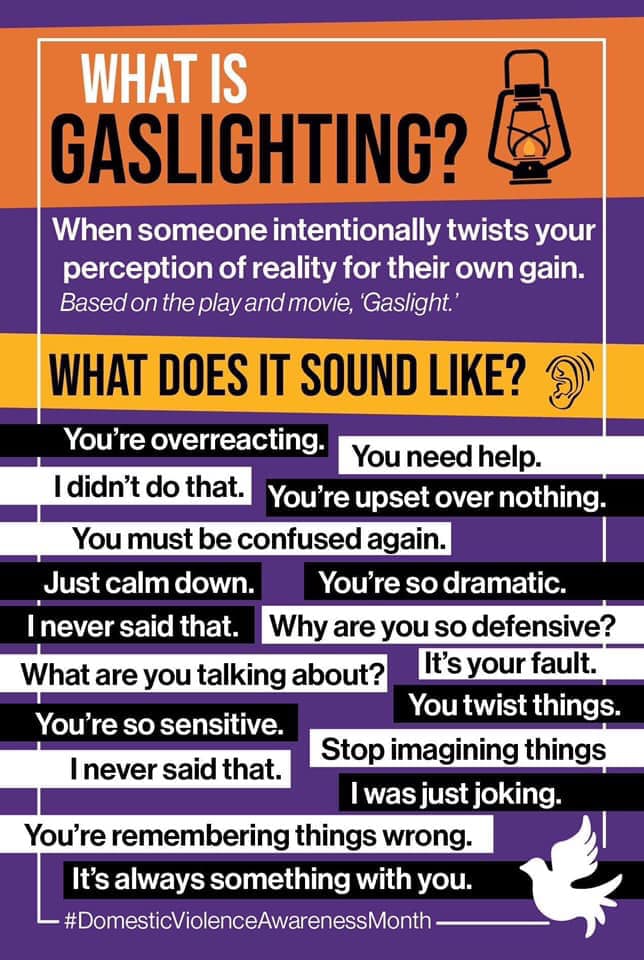Understanding Gaslighting: Recognising and Overcoming Psychological Manipulation
FACT CHECKED ✅
Gaslighting is a manipulative tactic often used by individuals to gain power and control over others. It is a form of emotional abuse where the abuser makes the victim question their reality, memory, or perceptions. This insidious behaviour can have devastating effects on the victim's mental health, leading to feelings of confusion, anxiety, and depression.
 |
| Gaslighting is a form of emotional abuse often used by to gain power and control over others. (📷: unitedwecare) |
The Origins of Gaslighting
The term "gaslighting" comes from the 1938 play "Gas Light" and its subsequent film adaptations. In the story, a husband manipulates his wife into believing she is losing her sanity by making small changes in their environment and insisting that she is mistaken or imagining things when she notices them. This portrayal highlights the subtle and deceptive nature of gaslighting, where the abuser gradually undermines the victim's confidence in their own perceptions.
Tactics of Gaslighters
Gaslighters employ various tactics to distort the victim's sense of reality, including:
Denial: They flatly deny things they have said or done, even in the face of evidence. This creates doubt in the victim's mind.
Projection: They accuse the victim of the very behaviours or traits they themselves exhibit, diverting attention from their own actions.
Trivialising: They downplay the victim's feelings and experiences, making them feel unimportant or over-reactive.
Withholding: They refuse to engage in meaningful conversations, pretending not to understand the victim's concerns.
 |
| (📷: consultingrose) |
The Impact on Victims
Gaslighting can have severe psychological consequences. Victims may start to doubt their own memories, perceptions, and judgements. Over time, this can lead to:
Low self-esteem: Constantly questioning oneself can erode confidence and self-worth.
Anxiety and depression: The stress and confusion caused by gaslighting can contribute to mental health issues.
Isolation: Victims may withdraw from social interactions, fearing judgement or disbelief from others.
Recognising Gaslighting
Identifying gaslighting is the first step towards breaking free from its grip. Signs that you might be experiencing gaslighting include:
• Feeling like you can't do anything right or that you're overly sensitive.
• Apologising often, even when you're not at fault.
• Making excuses for the abuser's behaviour to friends or family.
• Feeling confused or as though you're losing your sanity.
Dealing with Gaslighting
Overcoming gaslighting involves several steps:
1. Seek Support: Talk to trusted friends, family, or a therapist who can provide an outside perspective and validate your experiences.
2. Document Interactions: Keep a journal of conversations and incidents when they involve your career or legal scenarios, to help clarify what actually happened.
3. Set Boundaries: Establish and maintain clear boundaries with the gaslighter to protect your mental and emotional well-being.
4. Educate Yourself: Understanding the dynamics of gaslighting can empower you to recognise and resist manipulation.
/cdn.vox-cdn.com/uploads/chorus_image/image/49406513/break-chains.0.jpg) |
| Identifying gaslighting is the first step towards breaking free. (📷: vox) |
Gaslighting is a pernicious form of emotional abuse that can profoundly affect a victim's mental health. Recognising the signs and seeking support are crucial steps towards reclaiming your sense of reality and well-being. Remember, you are not alone, and help is available to guide you through the process of healing and recovery.
⭐⭐⭐
*AI assisted


